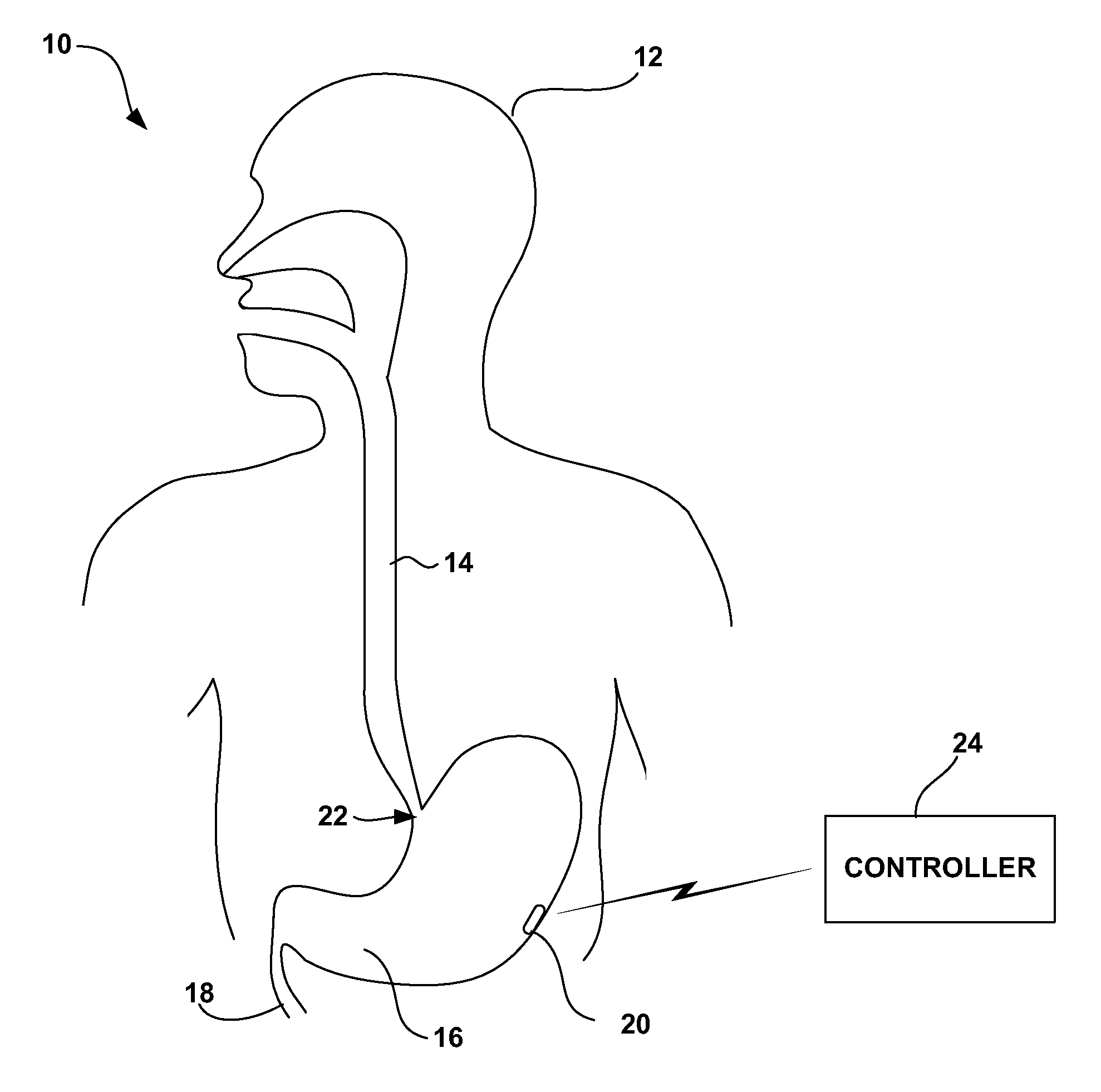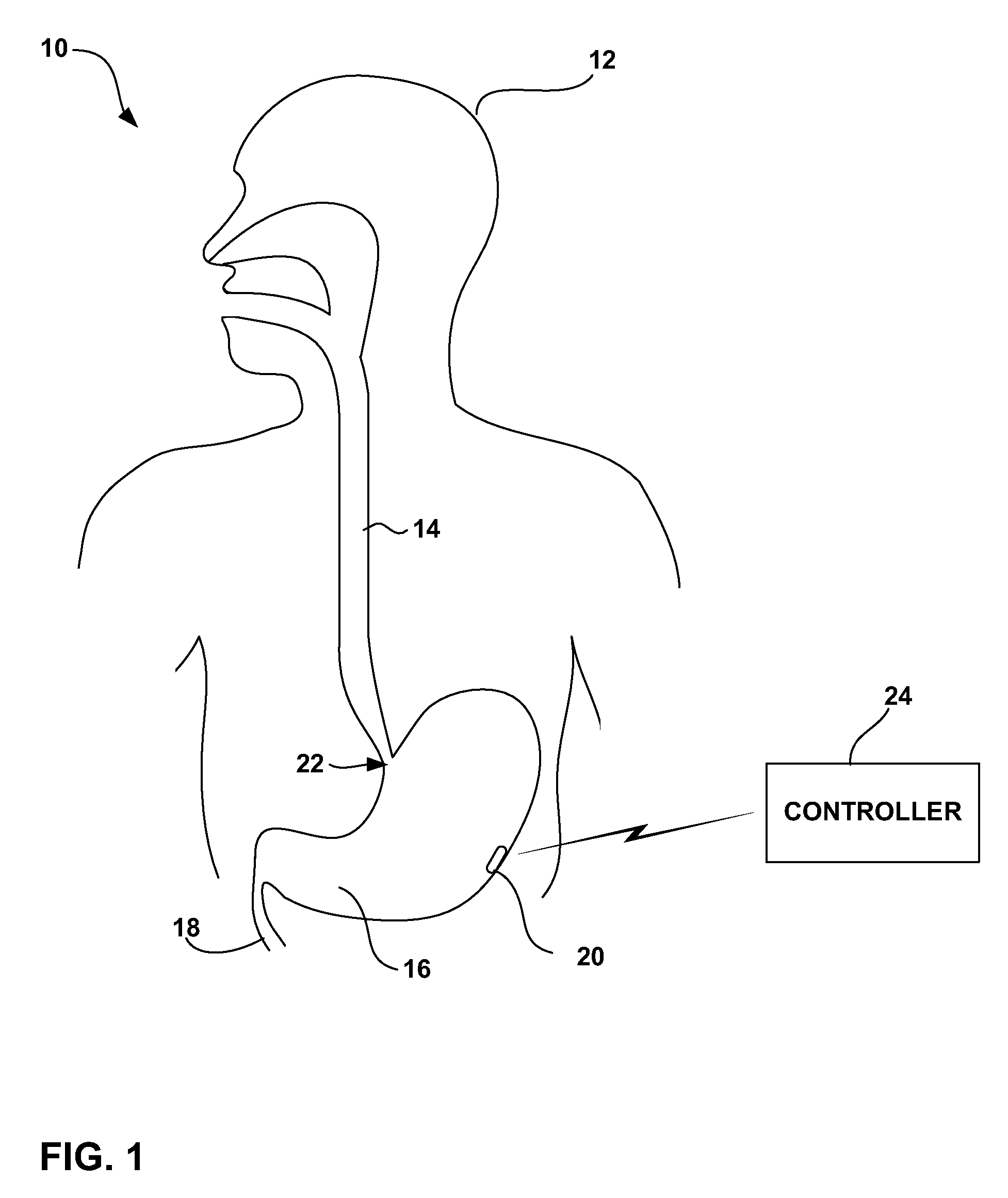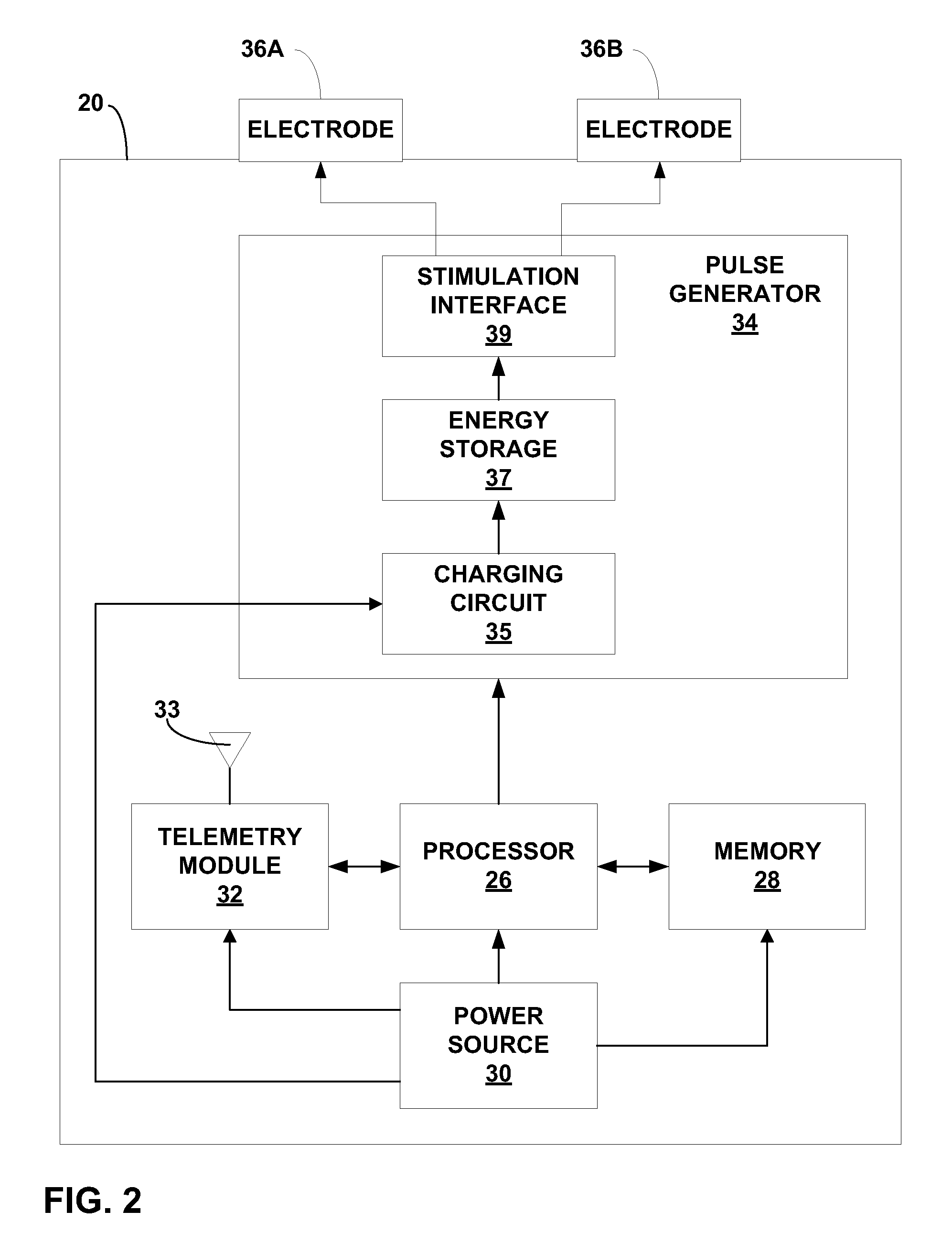Intra-Luminal Device for Gastrointestinal Electrical Stimulation
a technology of electrical stimulation and gastrointestinal tract, applied in the field of medical devices, can solve the problems of inability to easily remove inability to implant existing electrical stimulation devices without surgery, and inability to easily replace the existing electrical stimulation device designed for chronic implantation, etc., to reduce patient discomfort, avoid surgery, and eliminate the need for surgery
- Summary
- Abstract
- Description
- Claims
- Application Information
AI Technical Summary
Benefits of technology
Problems solved by technology
Method used
Image
Examples
Embodiment Construction
[0041]FIG. 1 is a schematic diagram illustrating a gastrointestinal electrical stimulation system 10 shown in conjunction with a patient 12. In the illustrated embodiment, stimulation system 10 delivers electrical stimulation to a target location within the gastrointestinal tract, such as the esophagus 14, stomach 16, small intestine 18, or colon (not shown). Stimulation system 10 includes a stimulation device 20, which may be placed at a target location by endoscopic delivery. In particular, stimulation device 20 may be delivered via the oral or nasal passage of patient 12 using an endoscopic delivery device. In the example of FIG. 1, stimulation device 20 resides within stomach 16. In this case, the endoscopic delivery device traverses esophagus 14 and then enters into stomach 16 via lower esophageal sphincter 22 of patient 12.
[0042] Stimulation device 20 may have a capsule-like device housing sized for endoscopic introduction via esophagus 14 and, in some embodiments, passage th...
PUM
 Login to View More
Login to View More Abstract
Description
Claims
Application Information
 Login to View More
Login to View More - R&D
- Intellectual Property
- Life Sciences
- Materials
- Tech Scout
- Unparalleled Data Quality
- Higher Quality Content
- 60% Fewer Hallucinations
Browse by: Latest US Patents, China's latest patents, Technical Efficacy Thesaurus, Application Domain, Technology Topic, Popular Technical Reports.
© 2025 PatSnap. All rights reserved.Legal|Privacy policy|Modern Slavery Act Transparency Statement|Sitemap|About US| Contact US: help@patsnap.com



